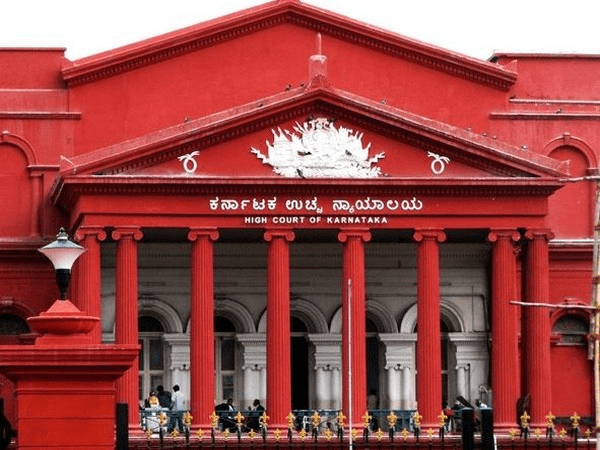The Karnataka High Court has held that the power under Article 162 of the Constitution of India is co-terminus with legislative power and in the absence of any statutory provision, power under Article 162 of the Constitution of India can be exercised.
The Division Bench of Acting Chief Justice Alok Aradhe and Justice S. Vishwajith Shetty disposed of a petition filed pro bono publico (for the public good) seeking the following relief against the Ramachandrapura Math and its mathadipathi Raghaveshwara Bharathi Swamiji:-
a. An appropriate writ/direction to the 3rd respondent (State of Karnataka) to exercise its executive power to regulate the 2nd respondent (Mathadhipathi) and all other Maths in the state pending the passing/ enactment of a regulatory statute by the State Legislature. Alternatively, to frame a scheme to regulate Maths in general and in the present context to regulate the 2nd Respondent having regard to the misuse and abuse of powers by the 1st respondent.
b. An appropriate writ/direction removing the 1st respondent from the office of Mathadipathi/Mahant or head of the Peetha of the 2nd Respondent Math/Institution and direct prosecution for misuse and abuse of the office;
c. To appoint a committee comprising of eminent devotees, representatives /officials of the government, retired Judge/s of the Supreme Court or the High Court who would suggest the successor/Peethadipathi to the 2nd Respondent and to manage/ administer the affairs of the 2nd Respondent till the successor takes charge;
d. To direct the 6th respondent to order investigation into affairs of the 1st and 2nd Respondents regarding evasion of tax and other offences under the Tax legislations and initiate action against concerned persons;
e. To monitor all investigations regarding complaints/offences lodged and reported till now and that may be lodged in future against the 1st Respondent and in relation to the affairs of the 2nd Respondent and anything incidental or connected thereto;
The facts giving rise to the filing of the petition is that the math was established in 8th Century and was known as Raghottama Math and is involved in propagation of tenets of Sanatan Dharma and Indian philosophy and is an institution propagating social, religious philosophical and charitable issues. The Math is headed by a Mathadhipathi who is the head of spiritual fraternity and has to perform religious of a religious teacher. It is his duty to practice and propagate the religious tenets. The affairs of Math / Religious institutions were being regulated by Mysore Religious and Charitable Institutions Act, 1927. The said Act was repealed by Karnataka Hindu Religious Institutions and Charitable Endowments Act, 1997. The 1997 Act was enacted in view of long standing public demand to bring about a uniform law to provide for regulation of charitable endowments and Hindu religious institutions in the State.
The respondent No.1 took over as Matadhipathi of the Math from 18.04.1999.
The petition under Section 92 of the Code of Civil Procedure, 1908 filed by Prashanth Kumar M.B and Lokesh M for grant of leave to file a suit seeking removal of respondent No.1 from the seat of Peetadhipathi / Mahant of the Math and to appoint a new Peetadhipathi / Mahant was rejected by an order dated 17.10.2017. The petition under Section 92 of the Code filed by T.T. Hegde was dismissed for non-prosecution on 30.11.2017.
The petitioners thereafter claiming to be the devotees of the Math have filed this petition on 25.04.2016, inter alia on the ground that respondent No.1 has committed malpractices and has rendered himself ineligible to continue as Peetadhipathi / Mahant.
While considering the petition, the Court observed that the hallmark of our Constitution is to build a society to attain justice and erase inequities flowing from religion, gender, caste and privileges. In this background, Articles 25 to 30 are incorporated in the Constitution. Article 25(1) of the Constitution guarantees the freedom of conscience, the right to freely profess, practice and propagate religion subject to public order, morality and health. Article 26 confers the right to establish institutions for religious or charitable purposes and to maintain its own affairs in the matter of religion, on every religious denomination, subject to public order, morality and health.
“It is trite law that power under Article 162 of the Constitution of India is co-terminus with legislative power and in the absence of any statutory provision, power under Article 162 of the Constitution of India can be exercised. It is equally well settled legal proposition that if there is an alternative remedy, jurisdiction of this Court under Article 226 of the Constitution of India shall not ordinarily be exercised specially in a case where right is created by the statute which itself provides for a remedy. In such a case, an aggrieved person should resort to the remedy provided to him under the statute,” the High Court held.
The Bench noted that the Legislature has expressly excluded the Maths and Temples attached to the Maths, as they are headed and managed by mathadipathis. In any case, the petitioners have an alternative efficacious remedy under Section 92 of the Code of Civil Procedure. Therefore, the High Court is not inclined to exercise the extraordinary discretionary jurisdiction under Article 226 of the Constitution of India, and therefore, the petition is held to be not maintainable by the Bench.
“However, liberty is reserved to the petitioners to take recourse to the remedy provided under Section 92 of the Code,” the Court further observed.


